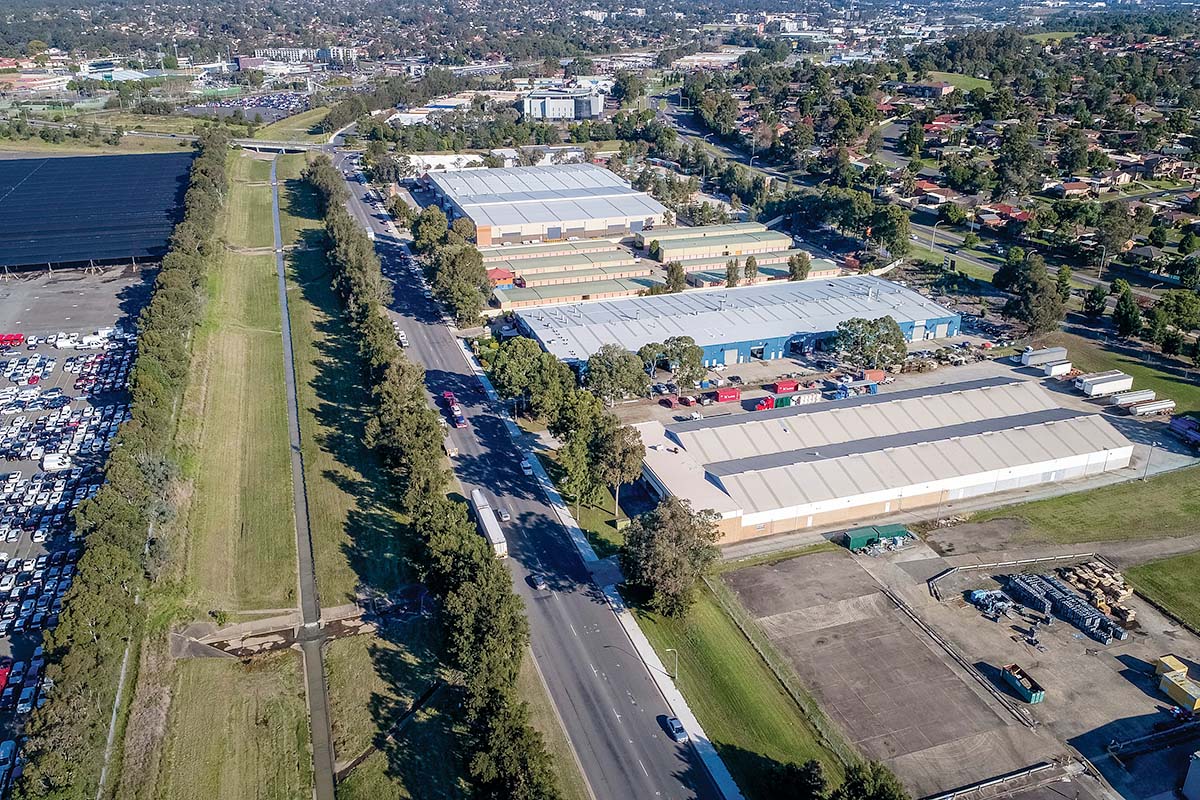Employment lands are areas zoned for industrial or similar purposes. They provide essential land for the delivery of goods, utilities and urban services.
These industries and businesses support jobs growth and development, as well as generating significant economic benefit for the community. They are crucial to the functioning of cities and increasing housing supply.
NSW requires more well located, serviced and affordable employment land to create jobs close to home and to drive business investment.
Industrial Lands Action Plan
The Department has prepared an Industrial Lands Action Plan (PDF, 978 KB) outlining an approach to secure, manage and monitor the supply of industrial lands across NSW.
The plan aims to provide greater consistency and certainty for industrial land planning.
The plan outlines 4 initiatives to be progressed over the next 12–24 months:
- Deliver a statewide categorisation policy for the supply pipeline of industrial lands to replace the existing Retain, Review and Plan and Manage policies.
- Make planning and policy interventions to increase flexibility on land zoned for industrial purposes.
- Finalise and release a statewide pipeline for supply of industrial lands.
- Implement an Employment Land Development Program to coordinate infrastructure investment for the supply of industrial land.
The Department will continue to work with industry, agencies and councils to implement and deliver on the priorities within the action plan.
For more information on the action plan, email [email protected]
Employment Land Development Program
The Department has established the Employment Land Development Program to help improve the supply of industrial lands across NSW.
The program aims to:
- support a pipeline of zoned industrial land across NSW
- provide certainty for industry
- support access to jobs closer to home, particularly in Western Sydney and regional NSW
- advise the Government on infrastructure and servicing investment to unlock zoned industrial land to secure the pipeline.
As part of the program, the Department will review existing employment land across NSW and consult with stakeholders to select priority employment areas that are capable of unlocking industrial land for development.
The review will consider key criteria relevant for industrial sectors, including land size and development status, location, constraints and operational needs and requirements.
The Employment Land Development Program aims to build on and support the existing Employment Lands Development Monitor.
For more information on this project, email [email protected]
Frequently asked questions
Employment land contains a mix of businesses involved in manufacturing; transport and warehousing; service and repair trades and industries; integrated enterprises with a mix of administration, production, warehousing, research and development; and urban services and utilities.
Industrial land generally does not include areas that are used primarily for commercial or retail uses such as central business districts or town centres.
For the purposes of the Industrial Lands Action Plan all employment lands are referred to as ‘industrial’ lands.
NSW is experiencing a supply shortage of development ready industrial land. The Department seeks to apply a consistent and coordinated approach to actively plan, manage and monitor industrial lands across NSW. The Industrial Lands Action Plan is the roadmap outlining the initiatives we will progress over the next year. This plan provides transparency and certainty to agencies, councils and industry about the steps the Department will undertake to address the many issues facing industrial lands supply over many years.
Industrial lands are essential to support the delivery of additional housing across the state. A sufficient supply of industrial lands within our cities and regions ensures that the manufacturing of goods and materials are accessible. An efficient and well-functioning freight and logistics sector places downward pressure on the cost of materials and their distribution that are required to build housing. Industrial lands also provide jobs supporting population growth.
The Industrial Lands Action Plan outlines the key initiatives that the Department will be progressing in relation to industrial lands, including:
- Delivering a statewide categorisation policy for industrial lands to replace the existing retain, review and plan and manage policies.
- Making planning and policy amendments to increase flexibility on land zoned for industrial purposes.
- Finalising and releasing a statewide pipeline for supply of industrial lands.
- Implementing an Employment Land Development Program to coordinate infrastructure investment for the supply of industrial land over the next two decades.
Land that is zoned for industrial or similar purposes in planning instruments, is being considered in the categorisation of industrial lands. This includes lands zoned by SEPPs, such as the Transport and Infrastructure SEPP, as well as the new State Instrument employment zones. These are zones that contain a mix of businesses involved in manufacturing; transport and warehousing; service and repair trades and industries; integrated enterprises with a mix of administration, production, warehousing, research and development; and urban services and utilities.
Land zoned RU1 Primary production is not being considered as part of the Industrial Lands Action Plan as it is not land zoned primarily for industrial purposes.
The new statewide policy, when fully implemented, will replace current policies such as Retain and Manage with the categorisation of employment lands. All employment lands will be reviewed as part of that process.
As it will take time to deliver the policy, current policies as per the Greater Sydney Region Plan and other regional strategic plans will continue to apply until industrial lands in each region are reviewed and categorised.
However, the former Greater Cities Commission’s Information Note SP2023-1 Greater Sydney Industrial Lands Retain and Manage will no longer apply. Ministerial Direction Focus area 7: Industry and Employment will apply to any planning proposals seeking land use change for industrial lands.
The statewide Policy will be implemented through region plans as they are developed. Additionally, the Department’s Guide for local industrial land strategies will be updated to reflect the statewide policy in 2025.
The Department acknowledges the current policies and programs for industrial lands are too passive in their application to address the challenges NSW is facing. A more holistic and statewide approach is needed to actively plan, secure, manage and monitor industrial lands across NSW.
The Department will be undertaking targeted engagement with agencies, councils and industry to inform the delivery of the initiatives outlined in the action plan.
The Industrial Lands Action Plan has been prepared to provide transparency and certainty on the initiatives that will be progressed over the next 12 months. We will consult with councils to inform the delivery of the initiatives outlined in the plan.
If you work at a council and would like to be involved in the consultation process, email [email protected]
The statewide policy is being developed by the Department informed by consultation with agencies, councils and industry.
The engagement will also inform the assessment criteria, potential policy requirements and planning pathways for alternative uses.
The action plan outlines criteria being investigated, such as scale and accessibility, however engagement is essential in ensuring all perspectives are considered in the development of the criteria.
The industrial lands that will be captured as part of the statewide policy are those lands zoned under the definition of the Employment Lands Development Monitor.
The state significant and regionally significant industrial lands will be categorised by the Department and consulted on as they are identified through region planning processes.
The Department has established the Employment Land Development Program as an ongoing program to improve the supply of development ready employment land across the state. With an immediate focus on the freight and logistics sector, the program seeks to:
- Provide certainty by identifying priority ‘development ready’ employment lands over the next 10–15 years.
- Align and coordinate infrastructure investment to match market demand and supply needs.
- Improve monitoring and reporting of employment lands across NSW, linked with the supply pipeline approach and the Employment Land Development Monitor.
The program will respond to emerging trends and challenges across different industry sectors to maintain the pipeline.
The Employment Land Development Program is identifying zoned and undeveloped sites across the whole of NSW to address a shortfall in development ready industrial land. The lack of supply is contributing to low vacancy rates and pressure on industrial land values, having a flow-on impact to operating costs and the price of goods and services. Potential priority employment areas are identified through a multi-criteria analysis which considers existing and future infrastructure provision and weighs these suitability factors against the site's potential to support industry needs. Our initial focus is the freight and logistics sector and we will be using data from the Employment Land Development Monitor to track emerging trends and shift sector focus as needed.
Areas already zoned for an industrial purpose that can contribute most to the supply of industrial lands across NSW may be identified as potential priority employment areas. Our initial focus is on the freight and logistics sector. A multi-criteria analysis which considers the suitability of an area to accommodate new freight and logistics development is being used by the Employment Land Development Program team to create a shortlist of sites to be considered as priority employment areas. We expect to consult with the relevant councils, industry and government agencies in Q2 2025 to review these sites and refine the list.
For more information on the action plan, email [email protected]



